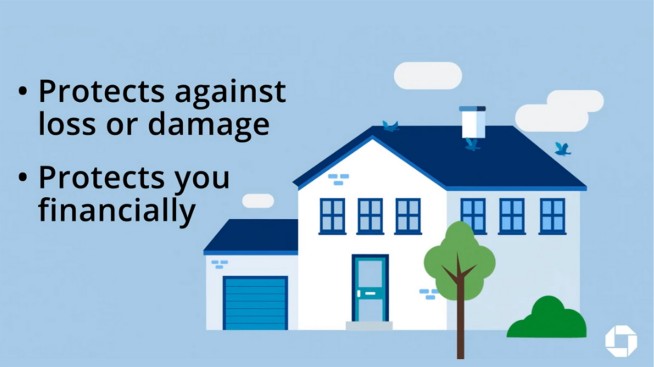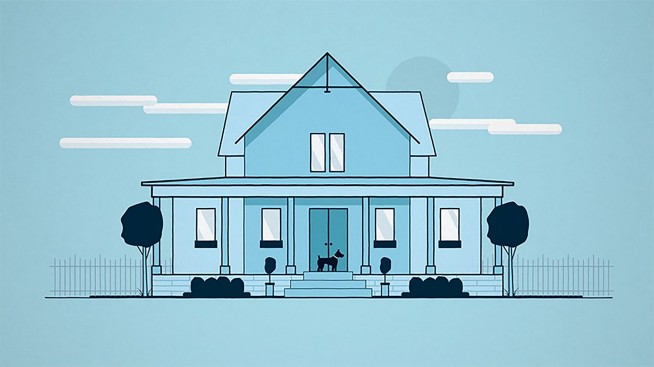Closing costs: Who pays what

Buying a home is exciting! There's nothing like the feeling of having a place to call your own. However, for anyone who’s been through the process may know it's not quite as simple as choosing a home and signing on the dotted line. You have to find a home, submit an offer and, once it’s accepted, obtain financing and make it all the way through closing.
One of the most important parts of house hunting is price. Creating a budget helps you determine how much you can afford so you can narrow down your search. When you consider your budget, it's important to include closing costs. Understanding who pays closing costs on a house, and where there might be wiggle room, will help you determine where to start.
What are closing costs?
In addition to obtaining financing, there are multiple steps you need to take to close on a home. At every stage, there are people who come in to perform different services, and each person needs to be paid. These are closing costs. Closing costs vary from lender to lender and state to state, but generally include:
- Appraisal costs
- Property taxes
- Loan discount points
- Origination fee
- Title transfer fees
- Private mortgage insurance (PMI)
These costs may be paid outright at closing or, in some cases, built into the financing of the loan.
Who pays closing costs?
So how much will you be responsible for? It depends. When you make an offer on a home, it’s not uncommon to ask the seller to pay part of your share of the closing costs, in addition to their own. These are called seller contributions. Whether the seller chooses to pay this cost will likely depend on the real estate market and the competitiveness of your offer.
Seller closing costs
The seller generally pays for most of the costs associated with the actual home itself. In other words, things that need to be done to prepare the home for sale. Additionally, they usually pay the realtor commission for both the buyer and seller's realtors. Typical seller costs include:
- Prorated property taxes: This depends on whether property taxes have already been paid or if they’re not yet due. If property taxes have been paid, the seller will receive a credit. If they’re not yet due, the seller is responsible for paying their share of the taxes before closing.
- Homeowners association (HOA) fees: If applicable, the seller must pay any HOA fees due before the buyer moves in.
- Title transfer fees: These fees are paid to the county to transfer the title from the seller to buyer.
- Realtor commissions: Each realtor charges commission for the sale of the home. Commission is based on a percentage of the sale price. Sellers generally pay the cost for both the seller's and buyer's agents.
Because the seller typically covers the realtor commissions for both parties, their closing costs usually fall between 6% to 10% of the house sale price.
Buyer closing costs
Where the sellers generally pay to prepare and transfer the home, the buyer is responsible for costs related to ensuring the home is the one they want to buy, as well fees related to obtaining financing. This includes:
- Appraisal costs: An appraisal is a professional estimate of the home's value.
- Inspections costs: Not all lenders require a home inspection, but it’s highly recommended. A home inspection can save you from surprise repair and upkeep costs down the road.
- Loan origination fee: This is a fee the lender charges to set up the loan. The cost varies from lender to lender, and is usually a percentage of the loan.
- Credit report costs: Your lender will pull your credit report. This fee is charged per report, and is fairly minimal.
- Homeowners insurance: This may be paid into your escrow account to cover your insurance payments throughout the year.
- Recording fee: This is the fee paid to the city or county to record the purchase of the home and the mortgage.
- Prepaid interest: This is the amount of interest you owe between the time you sign for the loan and when make your first payment. The earlier you close in the month, the higher this cost will be.
- Mortgage insurance: Private mortgage insurance (PMI) protects the bank in case you don't pay. Typically if you pay at least 20% down, you won’t need PMI.
While the buyer's list may seem longer than the seller's, many of these come at a minimal fee. The buyer’s closing costs are generally estimated between 2% to 5% of the sale price
Escrow account for homeowners insurance and property taxes
An escrow account allows your lender to pay your required homeowners insurance, and flood insurance when applicable, and property taxes for you. You may be asked to provide funds for your escrow account at closing to ensure you have enough to cover your taxes and insurance when they’re due. The total amount needed varies. Your annual insurance premium may be collected at closing, and depending on your closing date vs. the due date for your first tax payment, you’ll also need to provide anywhere from 3-8 months of taxes to cover that first payment.
Special considerations for closing costs
Some loan programs put a cap on how much a buyer can pay at closing. There may be additional costs in exchange for certain benefits. Examples include:
- VA loans: The United States Department of Veterans Affairs provides government-backed loans for qualified active duty and retired veterans. These loans allow 0% down and no PMI. However, unlike conventional costs, VA lenders require a funding fee, which varies.
- FHA loans: Contrary to popular belief, FHA loans are not just for first-time borrowers. Applicants who meet the minimum requirements may apply for an FHA loan. The loan, guaranteed by the Federal Housing Administration, allows borrowers to get a loan for as little as 3.5% down and a 1.75% upfront premium fee. If you use an FHA loan, you’ll have to pay a mortgage insurance premium (MIP).
While you can ask the seller to pay some of your closing costs, different loan types limit the maximum they can pay. For FHA loans, the seller can contribute up to 6% of the sale of the home towards closing. For conventional loans, the cap is based on LTV and can range from 3% to 9%. For VA, seller concessions cannot exceed 4% of the value of the property.
Non-traditional closing costs
Additional costs may come up depending on the results of the inspection or certain loan requirements. These closing costs may include:
- Home repairs: The home inspection is your opportunity to learn more about the condition of the home. In some cases, the inspection may uncover problems including mold, foundation issues or other safety issues. If the inspection reveals serious problems, you can back out of the deal, buy the home as-is or ask the seller to make repairs. Your Real Estate Agent or Attorney may be a helpful resource.
- Loan points: Your interest rate is usually based on your credit score and the market. However, you may have the option to buy down your rate with mortgage points. If you choose to do so, it will be included in your closing costs. One point equals 1% of your mortgage amount.
- Home warranty: A home warranty will protect major appliances and systems (e.g. HVAC) within the first year of purchase. This isn’t required, but may be requested by the buyer or offered by the seller.
How to save money on closing costs
Not all closing costs are set in stone. There are certain costs that you may be able to negotiate or transfer to reduce out-of-pocket costs and your monthly mortgage payments. Some things you may want to consider include:
- Ask the seller to pay for your closing costs. This is the easiest way to save money on closing costs. If you’re in a buyer's market, the seller may be more likely to cover your costs.
- Shop around for lenders. Different lenders offer different rates and charge varying fees. If you’re not satisfied with your initial offer, it's okay to shop around.
- Close near the end of the month: You can choose when you close on your home. Closing costs consider when you move into a home and prorate what you have to pay based on when you sign. The later in the month you close, the lower these prorated costs will be.
- Lock in your rate: Mortgage rates are variable and depend on the market. If you think rates might go up, you can pay to lock-in your rate for a certain amount of time. If you think rates might go down, you probably want to skip this cost.
Buying a home should be an exciting time in your life. While it's easy to get overwhelmed by all the line items on your loan, a qualified home lender will be there to guide you through every step of the process. For more information about closing costs and the homebuying process, speak to a Home Lending Advisor.



